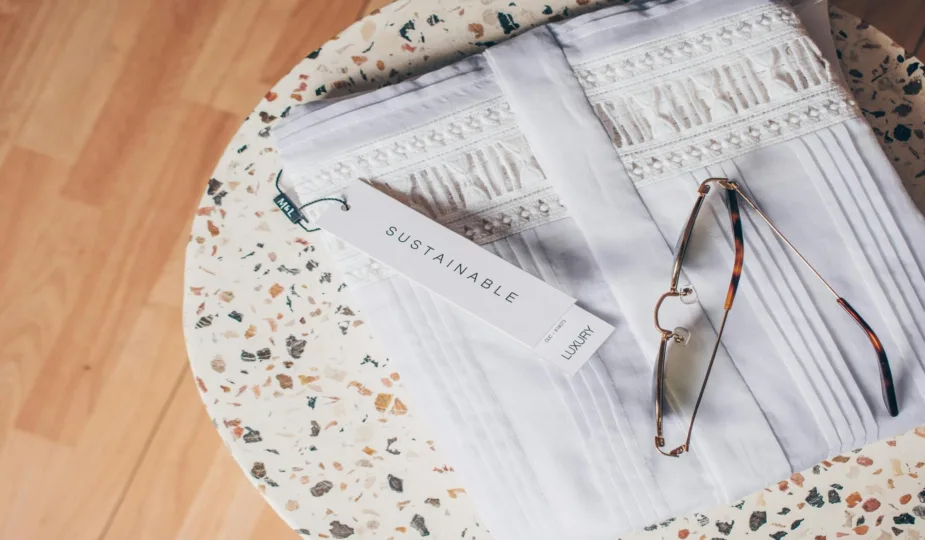Amidst the fleeting allure of fast fashion and ever-evolving style trends, sustainable fashion emerges as a crucial paradigm. Enlightened consumers, recognizing the profound environmental and ethical ramifications of their sartorial selections, are increasingly gravitating towards eco-conscious labels. Sustainable fashion transcends the mere use of organic inputs and waste minimization; it’s about crafting distinctive, timeless attire that endures beyond seasons. This article delves into the sustainable fashion realm and its transformative effects on the industry.
Sustainable Fashion’s Ascendancy
Once a specialized segment, sustainable fashion has burgeoned into a widespread phenomenon. The digital era, propelled by social media mavens and ethical brand advocates, has heightened consumer awareness of fashion’s environmental footprint. Prestigious labels are aligning with sustainability, as illustrious designers unveil collections that blend luxury with eco-responsibility, utilizing organic and reclaimed materials. This pivot to sustainable fashion heralds not a fleeting fad but a lasting revolution.
Fast Fashion’s Environmental Toll
The fashion sector stands as a significant polluter, with fast fashion’s relentless output exacerbating ecological degradation. The lifecycle of fast fashion—from production to surplus disposal—exerts a detrimental environmental toll. Patronizing sustainable labels empowers consumers to diminish fashion’s carbon imprint and champion responsible manufacturing ethos.
Championing Eco-Conscious Fabrics
At sustainable fashion’s core lies the commitment to eco-friendly fabrics that harmonize with nature. Brands dedicated to sustainability are at the vanguard of innovation, fashioning chic ensembles from materials like organic cotton and regenerated polyester. Opting for garments crafted from such materials, patrons can foster environmental well-being and endorse brands devoted to principled practices.
Advocating for Ethical Manufacturing
Beyond material considerations, sustainable brands underscore ethical manufacturing tenets. They strive for equitable remuneration and humane conditions for textile artisans, alongside supply chain transparency. Consumer support for ethically-minded labels can yield tangible improvements in garment makers’ lives and fortify a more virtuous fashion sector.
Embracing the Circular Fashion Ethos
Circular fashion, a cornerstone of sustainability, seeks to curtail waste and cultivate a regenerative garment lifecycle. This philosophy encourages garment recycling, creative repurposing, and designs conducive to longevity and adaptability. Adopting circular fashion principles enables consumers to prolong their wardrobe’s relevance and mitigate landfill-bound waste.
The Resurgence of Vintage and Thrift
Heightened eco-awareness has rekindled interest in vintage and thrift shopping. Embracing pre-owned apparel not only yields financial savings but also curbs the impetus for new garment production. Beyond its sustainability merits, the vintage and thrift scene offers a treasure trove of distinctive, storied fashion finds that distinguish the wearer.
Luxury Brands’ Sustainable Transformation
Luxury fashion, once synonymous with lavishness and rarity, is undergoing a green metamorphosis. Elite designers are integrating sustainable methods into their collections, signaling a departure from tradition. By incorporating organic resources and championing fair labor practices, these brands are redefining luxury fashion’s ethos. Consumers who align with these values bolster a fashion landscape that is both luxurious and responsible.
Sustainable Fashion’s Promising Horizon
The trajectory of sustainable fashion is set on an optimistic path as the industry adapts to a new eco-conscious narrative. The call for brand transparency and integrity in manufacturing is reshaping the fashion world. This shift towards sustainability heralds a future where fashion not only looks good but also advocates for planetary and social stewardship.
The Sustainable Style Movement
To encapsulate, sustainable fashion transcends fleeting trends, embodying a commitment to ethical and environmental integrity. It’s a collective stride towards a fashion industry that honors our planet and its inhabitants. By endorsing sustainable brands, consumers champion a movement that weaves eco-friendly materials and circular fashion principles into the fabric of society. Together, we can partake in this sartorial revolution, dressing with purpose and paving the way for a greener tomorrow.









